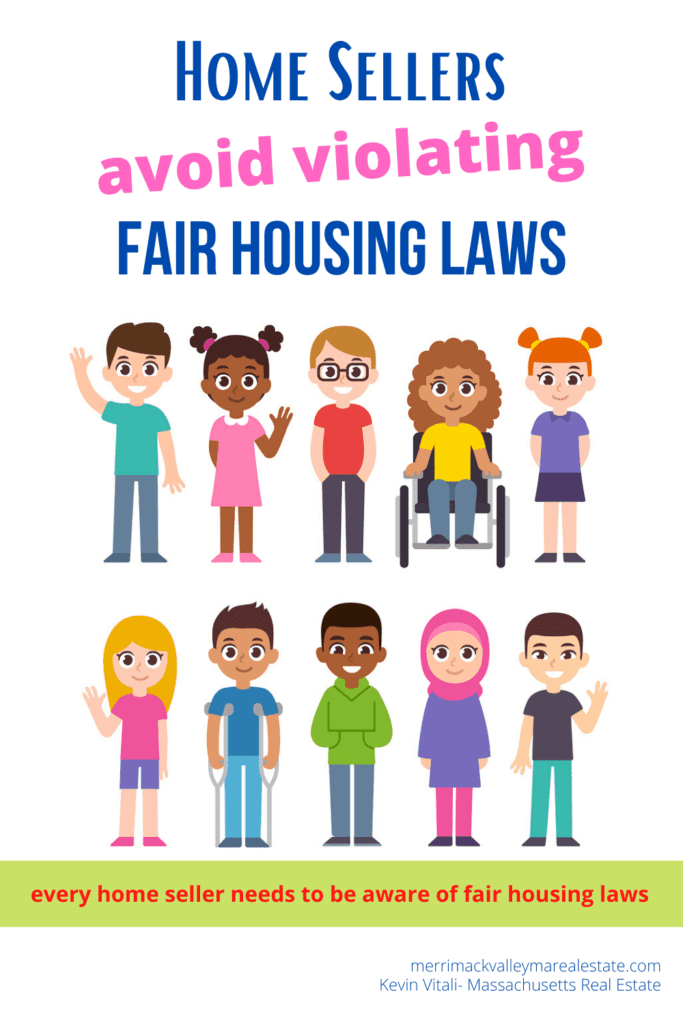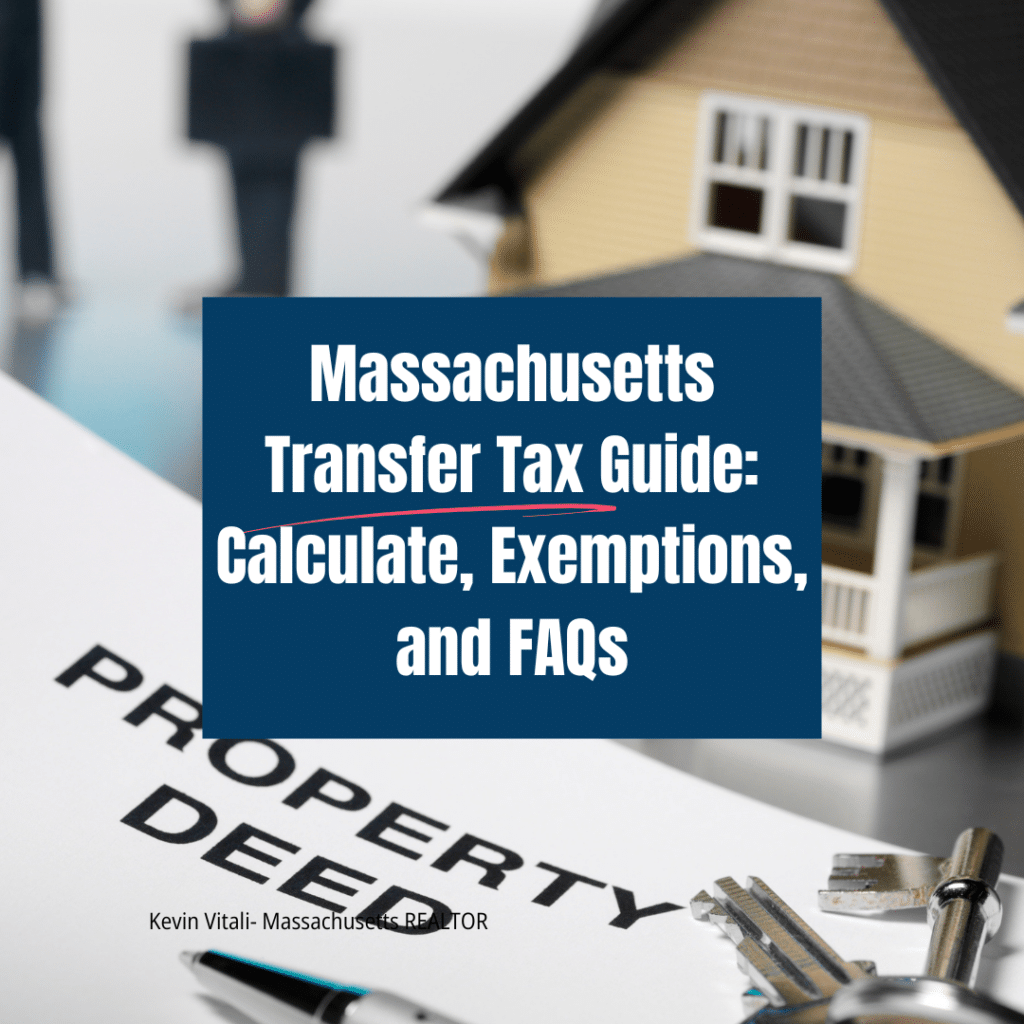 If you are about to sell your home it is important to take a quick look at fair housing laws. Fair housing laws have been enacted on both the federal and state levels to prevent discrimination against certain classes of people.
If you are about to sell your home it is important to take a quick look at fair housing laws. Fair housing laws have been enacted on both the federal and state levels to prevent discrimination against certain classes of people.
While most sellers have no intention of discriminating against a potential buyer, it is easier to say something that could be misconstrued as a violation of fair housing laws than you think.
As a full-time agent of almost 20 years, there are plenty of home sellers (and inexperienced agents) who inadvertently say something that could trigger a fair housing claim. This exactly one of the reasons home sellers should not talk directly to buyers. An experienced listing agent is there to prevent any future issues.
Fair Housing Laws
Not wanting to go into much detail here, I still wanted to point out to milestones in fair housing. Here is a quick summary of the Fair Housing Acts of 1968 and 1988 enacted by the federal government.
Fair Housing Act of 1968
The Fair Housing Act of 1968 was a federal law was enacted to prevent discrimination of a potential buyer / tenant based on race, color, disability, religion, sex, familial status, or national origin.
Fair Housing Act of 1988
The Fair Housing Act of 1988 amended the Fair Housing act of 1968 to add discrimination based on disability and families with children. Prior to the Fair Housing Act of 1988 sex was also added in 1974.
Protected Classes
When talking about fair housing you will hear the term protected classes. A protected class is a particular group of people…. women, families with children, the handicapped, etc…
When we talking about a protected class of people in the context of fair housing, it is important to not discriminate against that protected class.
The federal government has a set of protected classes when it comes to fair housing which all states must adhere too. Furthermore, states can add to the list of federally protected classes as well.
Federal Fair Housing Protected Classes
- Race- A person’s physical characteristics.
- Color- A person’s color of skin.
- National Origin- A person’s cultural origins.
- Religion- A person’s religious beliefs.
- Sex- A person’s gender.
- Familial Status- The makeup of a family whether single or married with children under 18, pregnant women, adopted children, etc…
- Disability- A person with a physical or mental impairment.
State Fair Housing Protected Classes
Every state can have additional protective classes to add to the federal list of protected classes. I will discuss Massachusetts who has some of more stringent fair housing laws in the country. In addition to the 7 federal protected classes, Massachusetts adds the following protected classes
Massachusetts Fair Housing Protected Classes
- Age- The age of the person.
- Ancestry- A person’s lineage.
- Children- If a person has a child or not.
- Marital Status- Married, unmarried, living together.
- Public Assistance- Persons collecting any public assistance.
- Genetic Information- Person who may be predisposed to an illness or handicap due to genetics.
- Veteran or Military Status- Person who is actively serving or has served in the past.
- Sexual Orientation- A person’s sexual preference.
- Gender Identity- What gender a person identifies with.
Fair Housing Violations
This is fairly obvious on the surface. Failing to rent to sell to a person in one of the fair housing protected classes puts you in violation of fair housing laws.
Or suggesting that a person of a protected class might be better off somewhere else based on the protected classes is also a clear violation.
That is relatively simple.
Inadvertently Discriminating Against Buyers
This is where it can get sticky. Simple, benign statements can put you in violation of fair housing laws. Unintentional violation of fair housing laws is still grounds for a complaint against you. And yes, sellers do it all the time!
There are also fair housing testers posing as renters and homebuyers to check and see if there are any discriminatory practices going on. You never know who may be walking through your door.
Here are some examples of things a seller may say or do that seem harmless but can open up a can of worms when it comes to fair housing laws.
- A seller meets the buyer in the driveway and sees two adults and a child and says you’ll love it here it is a great family neighborhood. Probem: First you are assuming the buyers are a family or married. By making the statement it can be misconstrued you are telling the buyer only families can live here or you must live here. The term for implying a person does not belong or does belong in a particular area is called steering and it is illegal.
- The same scenario, a seller sees an Asian family in the driveway and makes the statement there is a little Asian girl down the road about your age. Problem: Again the seller is steering, implying only Asians can live here or this is where Asians should live.
- A seller receives an offer and asks questions about the buyers….. are they a family, do they have children, are they an older couple, are they married, etc.,.. Problem: Having the knowledge of whether your buyers are in a protected class can create a problem if their offer is not accepted. Certainly do not make a decision based on that knowledge.
- You receive multiple offers and one of the buyers submits a “love letter” Problem: You have several similar offers and whether you decide to go with the love letter offer or not it can be misconstrued you chose an offer based on a protected class. For example, say the two offers are one from a family and one from an unmarried couple. No matter which you choose either party can make a claim that you discriminated against a family or you discriminated against an unmarried couple. By having that knowlege of the marital or familial status of your buyers puts you at risk.
It’s a no-win situation when you know too much about your buyers if one or more of them are in a protected class.
Recently, I had a listing agent tell me I was in a multiple offer situation. The listing agent flat out told me that the sellers expected a letter telling them who my buyers were and why they wanted the house. The reasoning was thy wanted to make sure whoever bought the house was a good fit for the neighborhood.
This is a clear and blatant violation of fair housing laws.
Penalties
If a fair housing claim is brought against you the financial penalties can be steep. Fines of up to $100,000 can be levied depending on where the case is being handled.
On top of a fine, you could be on the hook for damages, including alternative housing, a delta between your house and having to buy a more expensive house, as well as mental anguish, legal fees and potentially punitive damages.
It can get expensive.
How to Avoid Fair Housing Problems
Fair housing violations are more common than you think.
The good news is most buyers are forgiving of verbal missteps, are not truly aware of fair housing laws, or will understand the true intent of your statements and probably want to avoid expensive litigation. The chance of a suit for violation of fair housing laws is slim.
But that doesn’t mean you shouldn’t be careful of what you say and do. This is the best way of avoiding any problems in the first place
All it takes is one buyer who knows their rights and will leverage a situation to their gain.
The Sale Of A Home Is About Property Not People
Keep who the buyer is out of the equation. As a matter of fact, the less you know about who the buyer the better. In no way do you want to make a decision about an offer based
- Choose offers on the price terms and conditions and not who the buyers are. Your only concern about your buyer is their ability to secure a mortgage.
- Avoid talking about people in general. Talking about who the buyers are and even who the neighbors are is a slippery slope to take. If you aren’t bringing who the buyers are into the equation there will be no problems.
- Reject buyer’s love letters, telling you who they are and why your house is perfect for them. Don’t read them!!
- Avoid asking personal questions about the buyer. As a rule, I don’t not like buyers and sellers talking directly to each other to avoid any problems.
- If you do run into a buyer or buyer’s agent that starts asking questions, excuse yourself and ask them to please direct all questions to your listing agent. Let them do their job.
Be Careful Of Property Descriptions
Both you and your listing agent need to be diligent about preventing your property descriptions and advertising from violating fair housing laws. Your description should not say your home is or isn’t good for one or more protected classes of people.
Family Neighborhood
This one is probably the most common. Sellers often ask me to put a “great family neighborhood” in their description. But it is a no-no.
Instead of saying family neighborhood, describe the attributes that may make it great for a family.
Terms like sidewalks, cul-de-sac, large backyard, tree-lined, not a thru street are all features of a family-friendly neighborhood with out saying it.
Walk to
You might not consider this one, but by saying walk to shopping or restaurants you are excluding handicapped people who cannot walk.
Perfect for a Retired Couple
Another fair housing slip is saying a community or a home is perfect for an elderly couple or retired couple, etc… We often see this when a home has a first-floor master suite.
Again, it is enough to say first floor master bedroom and let the buyer determine the benefit for themselves.
Professional or Executive Neighborhood or Home
Calling out a home or neighborhood is a professional or executive neighborhood is another potential violation. You are excluding people on public assistance.
Scrub your marketing materials and make sure your advertising in no way implies who should or shouldn’t buy your home or discusses certain classes of people.
Summary
An experienced listing agent deals with fair housing laws on a regular basis. They will counsel you when they see there may be a problem. They always have fair housing laws in the back of their head when talking to buyers.
The problem arises if your agent isn’t around and you end up talking to a potential buyer because you did not leave you home or met them on your way in or out from the showing.
If you keep the sale of your home about the property and features and not about the people who are buying, should be buying or neighbors, it will go a long way in violating fair housing laws.
Remember, what seems like a benign statement or action, on your part, can be misconstrued, even though you had no malicious intent. It is best just not to go there to avoid any issues.
Absolutely avoid making any decision of whether to accept or deny an offer based on who the buyers are. Keep acceptance or denial of an offer based on terms, price and conditions.
Other Real Estate Resources:
- Offers are a good thing when selling a home. But not all offers are the same. Paul Sian gives us some great information on how to deal with offers when selling a home.
- Showing your home is vital to securing an offer. Sharon Paxson discusses some best practices for scheduling showings for your home.
- What do you need to disclose when selling your home. Different states have different disclosure laws. Bill Gassett discusses disclosure for home sellers and what you should and shouldn’t disclose.
- Home sellers can be their own worst enemy when it comes time to sell their home. Eileen Anderson shows us ways a home seller sabotages their own home sale.
Fair Housing Laws and Selling A Home is provided by Kevin Vitali of EXIT Group One Real Estate of Tewksbury MA. If you would like to buy or sell a home give me a call at 978-360-0422 and let’s get the process started.
Real Estate Services in the following areas: Northeast Massachusetts, Merrimack Valley, North Shore and Metrowest. Including the following communities and the surrounding area- Amesbury, Andover, Billerica, Burlington, Chelmsford, Dracut, Groveland, Haverhill, Lowell, Melrose, Merrimac, Methuen, Middleton, North Andover, North Reading, Reading, Stoneham, Tewksbury, Tyngsborough, Wakefield, Wilmington, Westford




